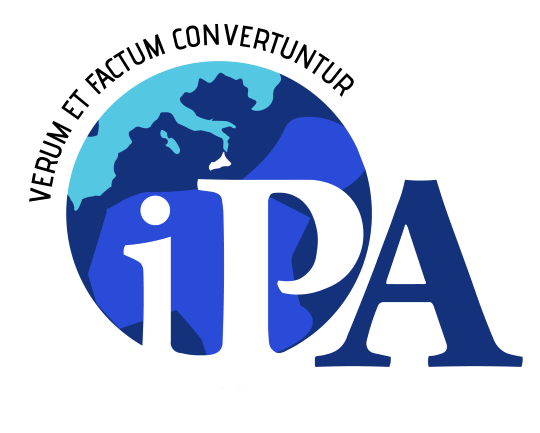Un workshop di Photo Placemaking in collaborazione con l’Università di Valencia

La collaborazione tra il nostro Istituto e l’Università di Valencia (UV) nell’ambito del progetto europeo “trans-making” ha permesso di realizzare un workshop di Photo Placemaking nel centro storico di Palermo il 5 gennaio 2022 per tutta la giornata. I responsabili dell’insegnamento del workshop erano Raúl Abeledo (Econcult, UV) ed Eva Máñez (fotoreporter) che avevano il supporto logistico dello studio fotografico Minimum e dello spazio di residenza d’arte Mojo CoHouse. Questo workshop è stato sviluppato in precedenza da Eva Máñez e Raúl Abeledo in altre città: Valencia (2019), Istanbul (2020) e Parigi (2021).
La giornata è consistita in un workshop fotografico legato alla deriva psicogeografica per ripensare la città attraverso le nostre emozioni e i cinque sensi. Questa proposta ha riscosso un notevole successo: a fronte di più di trenta candidati, quattordici sono stati infine i selezionati per partecipare all’iniziativa. Diversi i background dei partecipanti: fotografia, urbanistica, architettura, insegnamento, documentazione, manager del turismo.
Dopo una breve presentazione, i partecipanti si sono organizzati in cinque gruppi e, da diversi punti di partenza, sono scesi per le strade di Palermo. Per due ore e mezza hanno girato casualmente il centro storico, guidati dal lancio dei loro dadi. Ad ogni tappa che ha segnato il gioco, hanno dovuto occuparsi di una serie di domande tecniche sulle caratteristiche dello spazio pubblico in cui avrebbero poi ritratto le loro riflessioni e impressioni su di esso con le loro macchine fotografiche. Dopo pranzo, si è svolta la sessione pomeridiana nello studio fotografico Minimum dove i partecipanti hanno realizzato una mappa digitale basata sul processo di documentazione svolto al mattino. Questa mappa raccoglieva gli itinerari creati da ciascun gruppo e le immagini in esso ottenute. Successivamente, ogni gruppo ha presentato le proprie principali conclusioni e si è generato un interessante dibattito e condivisione che ha permesso di approfondire l’analisi della città.
In sintesi, l’esercizio ha permesso di rendere visibili i vari conflitti a cui oggi è sottoposto lo spazio pubblico: occupazione da parte delle auto, mancanza e mancata manutenzione di parchi e aree verdi, mancanza di adattamento per le persone con difficoltà motorie, cattiva gestione dei rifiuti e degrado di lotti e spazi abbandonati, occupazione di piazze e terrazze da parte dell’industria alberghiera. Per le sue specifiche caratteristiche storiche, Palermo affronta una dinamica globale comune a tante altre città: la privatizzazione del pubblico spazio, la commercializzazione del suo centro storico, un modello turistico massiccio e invasivo, la banalizzazione del suo patrimonio culturale e dell’universo simbolico e lo spostamento della popolazione residente dovuto alla speculazione nel mercato immobiliare.
____
EN
The cooperation between the Pedro Arrupe Institute and the University of Valencia (UV) in the framework of the European project “trans-making” has made it possible to carry out a Photo Placemaking workshop in the historic center of Palermo on January 5 throughout the day. Those responsible for teaching the workshop were Raúl Abeledo (Econcult, UV) and Eva Máñez (photojournalist) who had the logistical support of the Minimum photographic studio and the Mojo CoHouse art residency space. This workshop has been developed previously by Eva Máñez and Raúl Abeledo in other cities: Valencia (2019), Istanbul (2020) and Paris (2021)
The day consisted of a photography workshop related to psychogeographic drift to rethink the city through our emotions and the five senses. This proposal was generously received: more than 30 candidates registered, of which 14 were finally selected for reasons of capacity. He also highlighted the diversity of professional disciplines among the participants: photography, urban planning, architecture, teaching, documentation, tourism managers and a hairdresser.
After a short presentation, the participants organized into 5 groups and, from different starting points, took to the streets of Palermo. For 2 and a half hours they randomly toured the historic center, in a drift guided by the roll of their dadaist dice. At each stop that marked the game, they had to attend to a series of technical questions about the characteristics of the public space in which they were to later portray their reflections and impressions of it with their cameras.
After lunch, the afternoon session was held in the Minimum study, where the participants made a digital map based on the documentation process carried out in the morning. This map collected the itineraries created by the drift of each group and the images obtained in it. Subsequently, each group presented their main conclusions and an interesting debate and sharing was generated that allowed to deepen the analysis of the city.
In short, the exercise made it possible to make visible the various conflicts to which public space is subjected today: occupation by cars, lack and lack of maintenance of parks and green areas, lack of adaptation for people with mobility difficulties, poor management of waste and degradation of lots and abandoned spaces, occupation of squares and terraces by the hotel industry … In short, and from its own specific historical characteristics, Palermo faces a global dynamic common to that of so many other cities: the privatization of the public space, the commercialization of its historic center, a massive and invasive tourist model, the trivialization of its cultural heritage and symbolic universe and the displacement of the resident population due to speculation in the real estate market.




